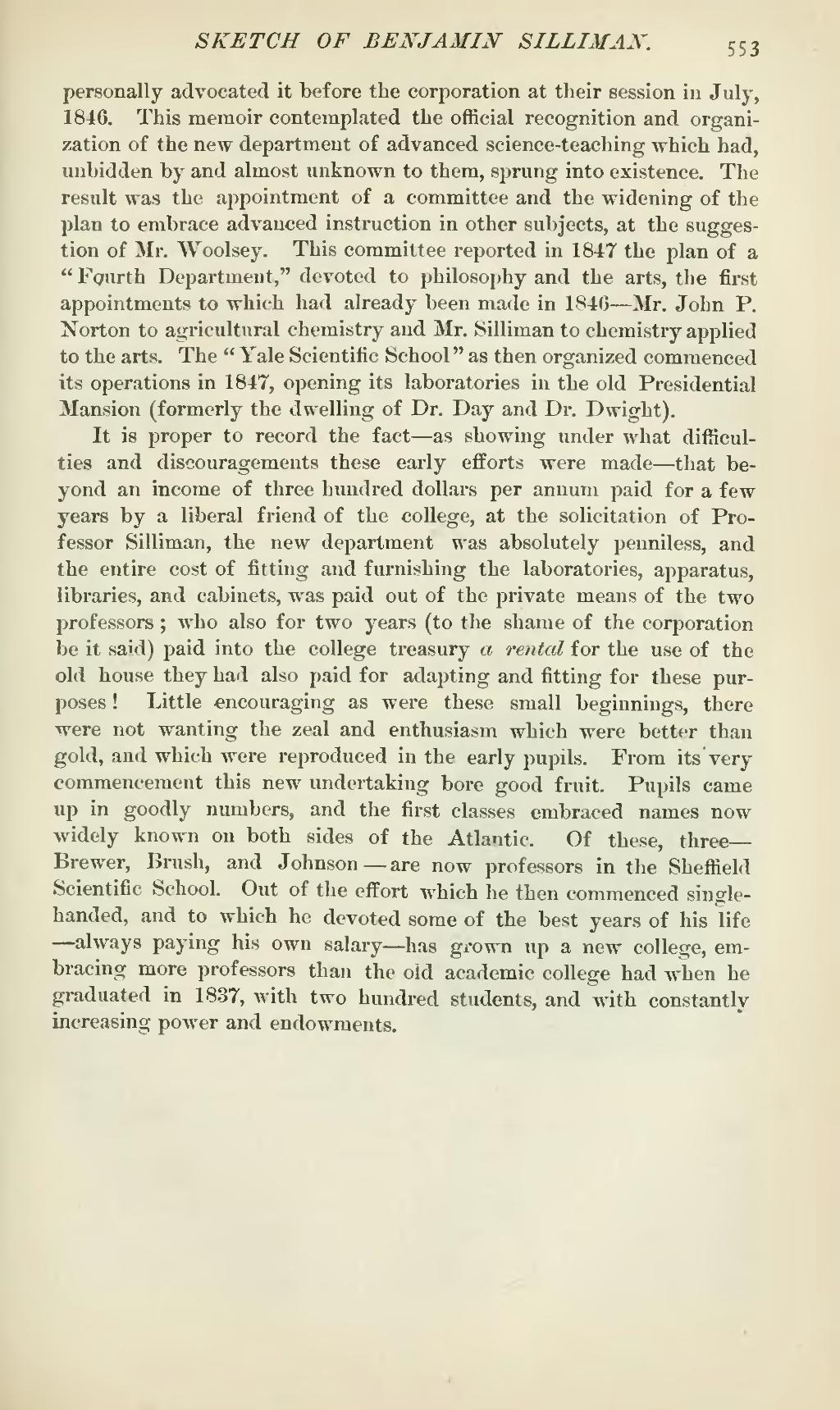personally advocated it before the corporation at their session in July, 1846. This memoir contemplated the official recognition and organization of the new department of advanced science-teaching which had, unbidden by and almost unknown to them, sprung into existence. The result was the appointment of a committee and the widening of the plan to embrace advanced instruction in other subjects, at the suggestion of Mr. Woolsey. This committee reported in 1847 the plan of a "Fourth Department," devoted to philosophy and the arts, the first appointments to which had already been made in 1846—Mr. John P. Norton to agricultural chemistry and Mr. Silliman to chemistry applied to the arts. The "Yale Scientific School" as then organized commenced its operations in 1847, opening its laboratories in the old Presidential Mansion (formerly the dwelling of Dr. Day and Dr. Dwight).
It is proper to record the fact—as showing under what difficulties and discouragements these early efforts were made—that beyond an income of three hundred dollars per annum paid for a few years by a liberal friend of the college, at the solicitation of Professor Silliman, the new department was absolutely penniless, and the entire cost of fitting and furnishing the laboratories, apparatus, libraries, and cabinets, was paid out of the private means of the two professors; who also for two years (to the shame of the corporation be it said) paid into the college treasury a rental for the use of the old house they had also paid for adapting and fitting for these purposes! Little encouraging as were these small beginnings, there were not wanting the zeal and enthusiasm which were better than gold, and which were reproduced in the early pupils. From its very commencement this new undertaking bore good fruit. Pupils came up in goodly numbers, and the first classes embraced names now widely known on both sides of the Atlantic. Of these, three Brewer, Brush, and Johnson—are now professors in the Sheffield Scientific School. Out of the effort which he then commenced single handed, and to which he devoted some of the best years of his life—always paying his own salary—has grown up a new college, embracing more professors than the old academic college had when he graduated in 1837, with two hundred students, and with constantly increasing power and endowments.
